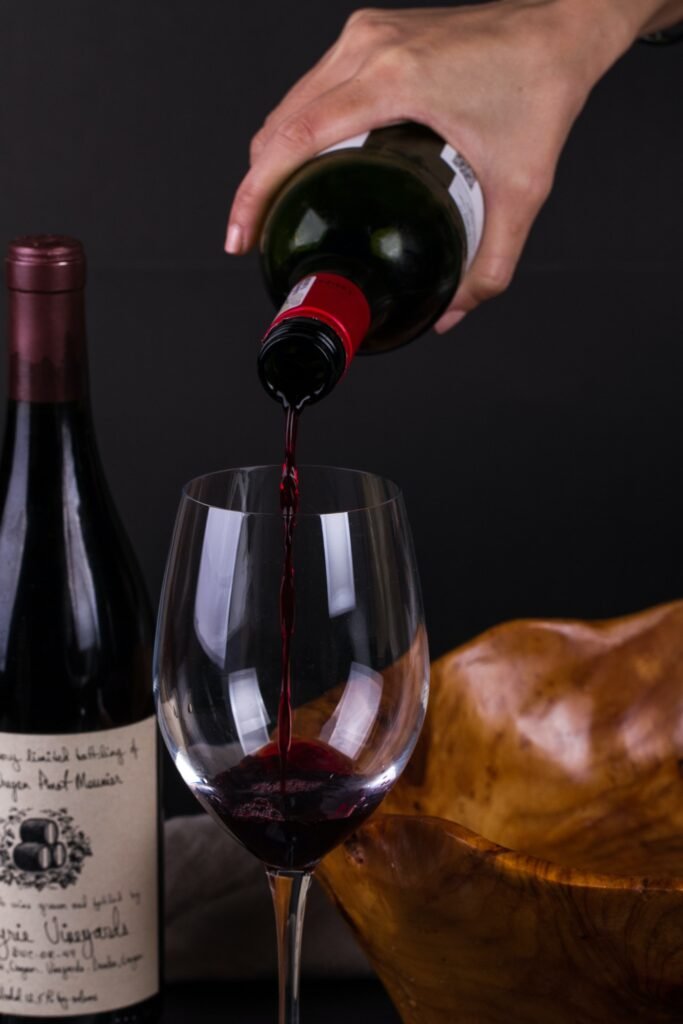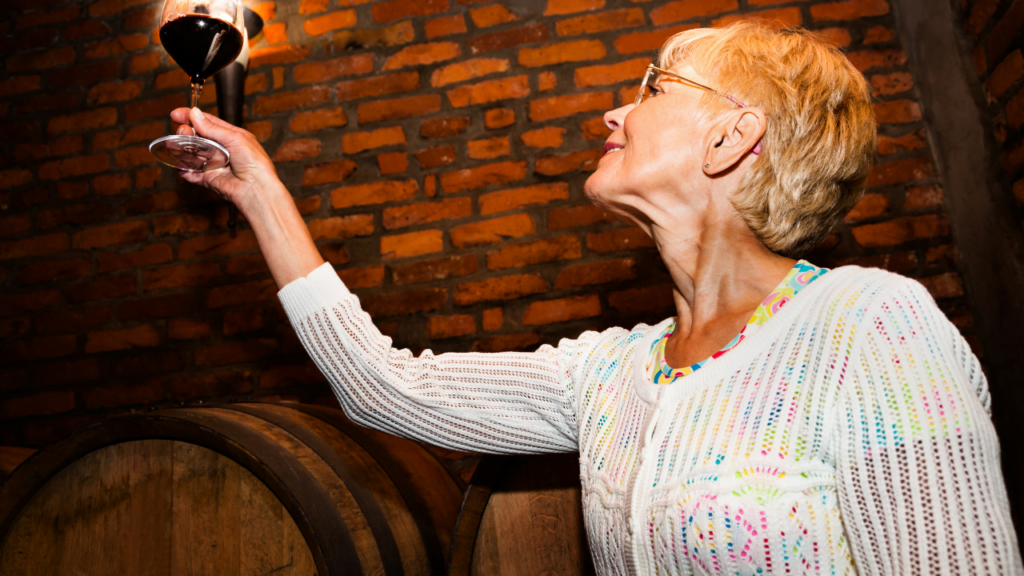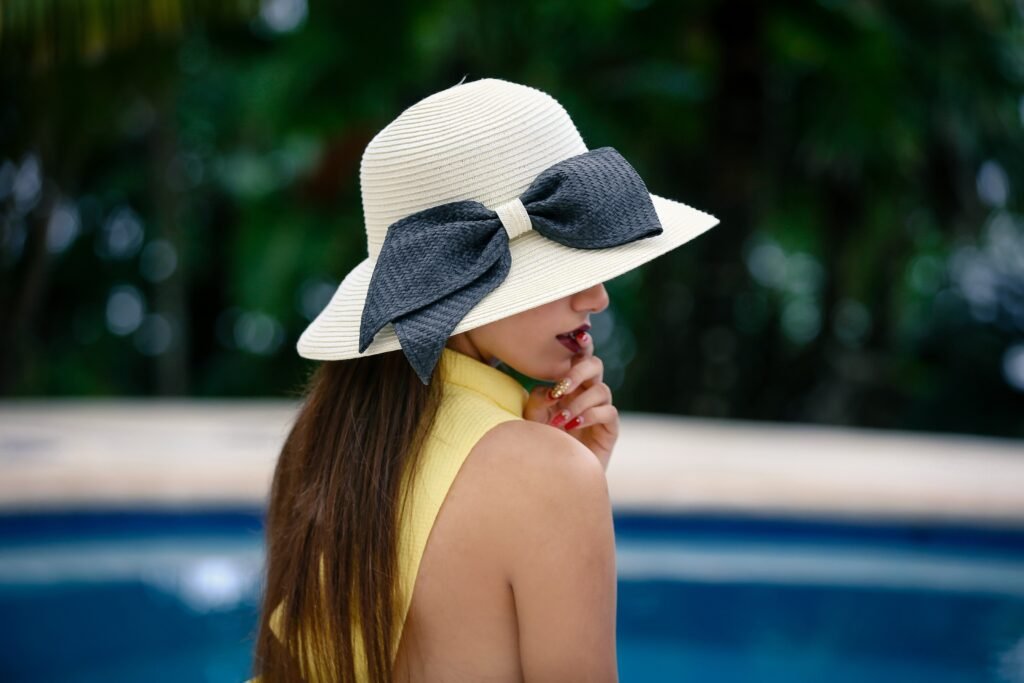Red Wine: The Key to Ageless Living!
Imagine a world where the secrets to eternal youth are not confined to mythical fountains or magical potions.
Instead, the answer lies within a captivating elixir that has been savored and celebrated for centuries: red wine.
Beyond its tantalizing taste and cultural significance, red wine has gained recognition for its astonishing anti-aging properties.
Hidden within its depths are potent antioxidants and compounds that have the power to combat the effects of aging and rejuvenate our bodies from within.
So, as we raise our glasses to a life well-lived, let us embark on a journey into the enchanting realm of red wine, where age becomes just a number, and the pursuit of timeless vitality begins.
Some of the links in this post are affiliate links. This means if you click on the link and purchase the item, I will receive an affiliate commision at no extra cost to you. All opinions remain my own. Read more on our Privacy Policy page
What is Anti-Aging and Oxidative Stress

What Makes Us Grow Older
Aging is a natural process that has fascinated humans for centuries. It involves a combination of factors, such as our genes, environment, and lifestyle choices, that influence how we age.
Exploring the intricacies of aging reveals a fascinating tapestry of biological changes and the quest to maintain vitality as we grow older.
By understanding aging, we can find ways to embrace the journey gracefully and discover the secrets to youthful longevity.
How Oxidative Stress Affects Aging
When it comes to aging, oxidative stress plays a significant role.
Picture it as a sneaky troublemaker that silently causes damage within our bodies, speeding up the aging process.
Oxidative stress happens when there is an imbalance between harmful molecules called free radicals and protective antioxidants. This imbalance triggers a chain reaction that harms our cells’ vital components, including DNA, proteins, and fats.
>>> PURELY beneficial RESVERATROL

Antioxidants and Their Fight Against Oxidative Stress
Now, let’s meet the superheroes known as antioxidants, armed with their extraordinary powers to combat oxidative stress.
These amazing compounds are found abundantly in various foods and beverages, including the beloved red wine we’re about to delve into.
Antioxidants work tirelessly to neutralize harmful free radicals, preventing them from damaging our cells. By bolstering our cellular defenses, antioxidants promote longevity, enhance cell function, and help us maintain a youthful vitality.
Exploring the anti-aging effects of antioxidants leads us on a captivating journey, where red wine shines as a potent elixir brimming with these remarkable compounds.
What You Need to Know About Anti-Aging Supplements
The Science behind Red Wine’s Anti-Aging Properties
Red Wine: The Key to Ageless Living

The Composition of Red Wine: Resveratrol, Polyphenols, and More
Red wine holds a fascinating combination of compounds that contribute to its potent anti-aging properties. One key component is resveratrol, a polyphenol known for its impressive antioxidant and anti-inflammatory effects. Additionally, red wine is rich in various polyphenols, including flavonoids and phenolic acids, which enhance its antioxidant capabilities. Exploring the composition of red wine reveals a diverse symphony of compounds working together to unlock its potential as a remarkable elixir for promoting youthful longevity.
Resveratrol: Unleashing the Power of Antioxidants and Anti-Inflammatory Effects
Within red wine, resveratrol takes the spotlight as a potent player with remarkable antioxidant and anti-inflammatory powers. It acts as a guardian, neutralizing harmful free radicals and reducing oxidative stress within our cells. Moreover, its anti-inflammatory properties support overall well-being, as chronic inflammation is intricately linked to the aging process. Understanding the profound impact of resveratrol sheds light on why red wine has gained acclaim for its ability to defy the signs of aging.
Polyphenols
Red wine boasts an abundant supply of polyphenols, a diverse group of antioxidants celebrated for their ability to combat aging. These powerful compounds act as vigilant protectors, shielding our cells from oxidative damage caused by free radicals. By preserving cellular health and function, polyphenols play a pivotal role in the fight against aging. Additionally, their anti-inflammatory properties contribute to overall well-being. Through the combined efforts of polyphenols, red wine emerges as an enticing elixir to incorporate into a vibrant and age-defying lifestyle.
Contributions of Additional Compounds in Red Wine
Beyond resveratrol and polyphenols, red wine houses an array of other compounds that enhance its anti-aging potential.
Notably, proanthocyanidins, a specific type of flavonoid found in red wine, exhibit robust antioxidant properties, safeguarding our cells against oxidative stress and supporting healthy aging.
Moreover, red wine supplies essential vitamins and minerals, such as vitamin C, vitamin E, and manganese, which contribute to overall health and well-being.
The collective contributions of these additional compounds deepen the allure of red wine as an extraordinary elixir for defying the effects of time, inspiring further exploration and appreciation.
>>> PURELY beneficial RESVERATROL

Red Wine and Cellular Health
Red Wine: The Key to Ageless Living

Red Wine’s Impact on Cellular Aging and DNA Protection
- Red wine’s antioxidants, including resveratrol and polyphenols, combat cellular aging and protect DNA.
- By scavenging free radicals, red wine reduces oxidative stress and minimizes cellular damage.
- Preservation of cellular health and DNA integrity are key benefits of red wine consumption.
Activation of Longevity Genes: SIRT1 and AMPK
- Red wine stimulates the activity of longevity genes, SIRT1 and AMPK.
- Activation of these genes promotes cellular repair, maintenance, and longevity.
- Red wine’s compounds, such as resveratrol, contribute to improved cellular function and increased lifespan.
Red Wine’s Influence on Mitochondrial Function and Cellular Energy Production
- Red wine positively influences mitochondrial function, which is crucial for energy production.
- The antioxidants and bioactive compounds in red wine protect mitochondria from oxidative damage.
- Preserving mitochondrial health through red wine consumption enhances cellular energy production and combats age-related decline.
Red Wine and Cardiovascular Health
Red Wine: The Key to Ageless Living

Nurturing Heart Health and Enhancing Circulation
- Red wine consumption associated with reduced risk of heart disease
- Antioxidants and polyphenols in red wine protect the heart by reducing inflammation and oxidative stress
- Red wine promotes production of nitric oxide, improving blood vessel function and blood flow
Lowering Cholesterol Levels and Preventing Arterial Plaque Formation
- Polyphenols in red wine increase “good” HDL cholesterol and reduce “bad” LDL cholesterol levels
- Red wine’s antioxidants inhibit oxidation of LDL cholesterol, preventing arterial plaque formation
Maintaining Healthy Blood Pressure and Preventing Hypertension
- Red wine’s antioxidants, particularly resveratrol, relax and widen blood vessels, contributing to lower blood pressure
- Red wine’s anti-inflammatory properties and improved blood vessel function help prevent hypertension
>>> PURELY beneficial RESVERATROL

Skin Health and Red Wine Consumption
Red Wine: The Key to Ageless Living

Red Wine’s Impact on Skin Aging and Appearance
- Red wine consumption has been associated with potential benefits for skin aging and overall appearance.
- The antioxidants found in red wine, such as resveratrol and polyphenols, help combat oxidative stress and free radical damage, which are key contributors to skin aging.
- By reducing oxidative stress, red wine may help promote a more youthful and radiant complexion, diminishing the appearance of fine lines, wrinkles, and age spots.
Promotion of Collagen Production and Maintenance of Skin Elasticity
- Red wine contains compounds that support collagen production, a vital protein responsible for skin strength and elasticity.
- The polyphenols in red wine stimulate collagen synthesis and help maintain skin’s elasticity, leading to improved firmness and resilience.
- By enhancing collagen production, red wine may contribute to smoother, more supple skin and a reduction in the visible signs of aging.
Reduction of Skin Inflammation and Prevention of UV-Induced Damage
- The anti-inflammatory properties of red wine, attributed to its antioxidants, can help alleviate skin inflammation and redness.
- Red wine’s polyphenols also have potential photoprotective effects, helping to defend the skin against damage caused by harmful UV radiation.
- By reducing inflammation and offering protection against UV-induced damage, red wine may contribute to healthier and more resilient skin.
Flawless Skin Serum, The most effective Serum for aging skin. Click here
Red wine for skin health?
Red wines with antioxidants, such as resveratrol and polyphenols, can benefit the skin. Varieties like Pinot Noir, Cabernet Sauvignon, and Merlot are often recommended. These wines may help protect the skin from oxidative damage and potentially reduce inflammation. It’s important to note that individual skin reactions may vary, so it’s advisable to listen to your body and consult with a dermatologist for personalized guidance.
Red or white wine for skin health?
Both red and white wines can contribute to skin health due to their antioxidant content. Red wines generally have higher levels of antioxidants, like resveratrol, which may offer potential anti-aging effects. However, white wines also contain antioxidants, albeit in lesser amounts. The choice between red or white wine for skin benefits depends on personal preference and individual skin sensitivity.
How to incorporate red wine into skincare?
While red wine may have potential benefits for the skin, it’s crucial to exercise caution and moderation. Some people incorporate red wine into their skincare routine by using it as a natural toner or in DIY face masks. However, diluting the wine with water or other ingredients is essential to avoid skin irritation. Prioritizing patch testing and consulting with a dermatologist before using red wine topically is recommended.
Ideal timing for red wine consumption and glowing skin?
There isn’t a specific ideal timing for consuming red wine for glowing skin. Moderation and balance are key. Enjoying red wine with meals can be beneficial, as the presence of food slows down alcohol absorption and mitigates potential negative effects. Additionally, maintaining a healthy diet, staying hydrated, and following a regular skincare routine are vital for achieving and maintaining glowing skin.
Incorporating Red Wine into Your Anti-Aging Lifestyle
Red Wine: The Key to Ageless Living

Tips for Selecting High-Quality Red Wine
- Choose red wines made from quality grapes, as the grape variety and origin can influence the wine’s antioxidant content and overall quality.
- Look for red wines that have been aged properly, as aging can enhance the flavors and complexity of the wine.
- Consider organic or biodynamic red wines, which are made from grapes grown without synthetic chemicals, offering a potentially purer and more natural product.
- Read reviews, consult experts, or seek recommendations from trusted sources to help guide your selection.
Recommended Serving Sizes and Frequency
- Enjoy red wine in moderation, adhering to recommended serving sizes. A standard serving size is typically considered 5 ounces (about 150 ml) of wine.
- It is generally advised to limit alcohol consumption to one glass per day for women and up to two glasses per day for men.
- Remember that individual tolerance and health factors can vary, so it’s important to be mindful of your own limits and consult with a healthcare professional if necessary.
Alternative Ways to Benefit from Red Wine
- If you prefer to avoid alcohol or are unable to consume wine, consider alternative ways to reap the potential benefits of red wine’s compounds.
- Opt for non-alcoholic grape juice made from red grapes, which can provide some of the antioxidant benefits without the alcohol content.
- Resveratrol supplements are available as an alternative, but it’s important to consult with a healthcare professional before adding any supplements to your routine to ensure they are suitable for you.
the Benefits of Crystal Water Bottles for weight loss and Holistic Wellness
Conclusion – Red Wine: The Key to Ageless Living

In conclusion, red wine presents a captivating blend of compounds that hold promise for promoting anti-aging effects. Its antioxidant-rich composition, along with its potential contributions to cardiovascular health and skin vitality, makes it a compelling addition to an anti-aging lifestyle. By incorporating red wine in moderation and considering alternatives like grape juice or supplements, individuals can harness its potential benefits while being mindful of their individual health needs.
With responsible consumption and a holistic approach, red wine can be embraced as a delightful companion on the journey towards vitality and longevity. So raise a glass, savor the flavors, and toast to a vibrant and age-defying future. Cheers!

FAQs – Red Wine: The Key to Ageless Living
Why is wine anti-aging?
Wine, particularly red wine, contains potent antioxidants like resveratrol and polyphenols. These antioxidants effectively combat oxidative stress and neutralize harmful free radicals that contribute to the aging process. By reducing oxidative damage and inflammation, wine has the potential to slow down aging and promote overall cellular health.
Does red wine improve your skin?
Red wine has been associated with improvements in skin health and appearance. The presence of antioxidants and polyphenols in red wine, such as resveratrol, helps protect the skin from oxidative damage caused by environmental factors. Additionally, red wine’s anti-inflammatory properties may aid in reducing redness and inflammation in the skin. However, it’s important to note that individual results may vary, and maintaining a comprehensive skincare routine and a healthy lifestyle are also crucial for optimal skin health.
What is the anti-aging molecule in red wine?
Resveratrol is the key anti-aging molecule found in red wine. As a powerful polyphenol, resveratrol has attracted significant attention for its potential health benefits, including its anti-aging properties. It acts as an effective antioxidant and has demonstrated anti-inflammatory effects. Resveratrol may help protect against cellular damage, activate longevity genes, and contribute to overall well-being.
What wine is best for aging?
Certain wines are well-suited for aging due to their high tannin, acidity, and structural characteristics. Red wines generally have better aging potential compared to white wines. Varieties such as Cabernet Sauvignon, Bordeaux blends, Barolo, Brunello di Montalcino, and Syrah are commonly chosen for aging. These wines typically exhibit robust flavors and tannins that evolve and gain complexity over time. It’s important to consider that aging potential can vary based on factors such as wine regions, producers, and specific vintages. Seeking guidance from experts or conducting research when selecting wines for aging is advisable.






